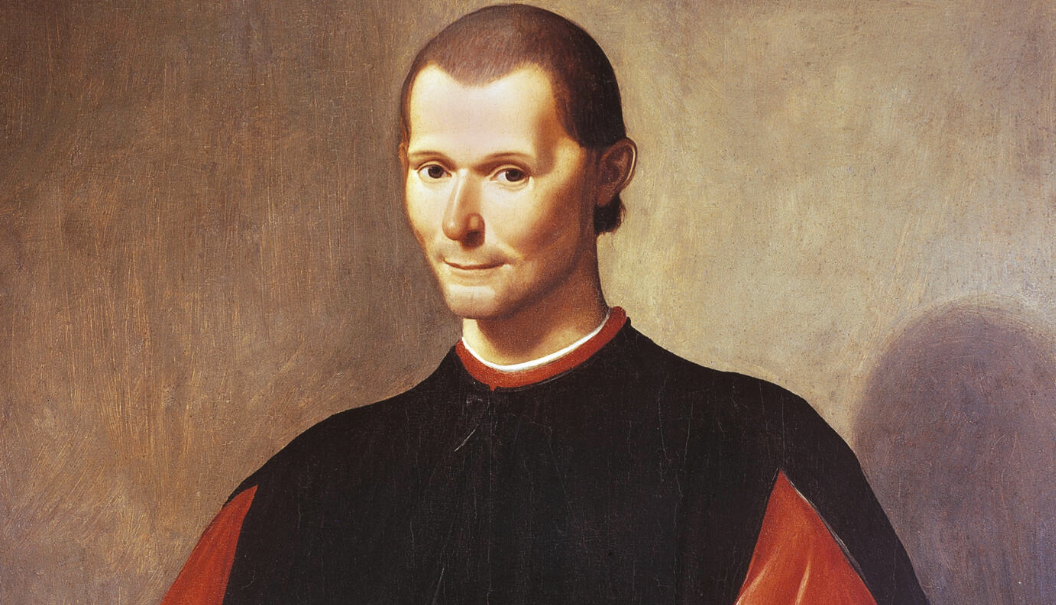Niccolò Machiavelli: Good or Bad?

Niccolò Machiavelli was born at Florence on 3rd May 1469. He served as Italian Renaissance political philosopher and statesman after the fall of Medici in 1494 until their return in 1512. He was then accused of conspiracy against Medici, imprisoned, and put to question by torture during which he wrote "The Prince", one of the moving books of 16th Century. Eventually, The Prince was published in 1532, five years after Machiavelli’s death. Over the centuries that followed, the principles it espoused would trigger outrage as well as admiration and establish Machiavelli as a controversial and revolutionary political thinker. In 1559, all of Machiavelli’s works were placed on the Catholic church’s “Index of Prohibited Books.” The recently formed Protestant Church also condemned The Prince, and it was banned in Elizabethan England. Although the light of almost five centuries has been focused on "The prince", its problems are still debatable and interesting, because they are the eternal problems between the ruled and the rulers.
In "The Prince", he talks about how to be politically successful and how to achieve power by giving examples from the history. But some people take it as a cold-blooded blueprint for how to gain and hold onto power. According to Machiavelli, the ends always justify the means—no matter how cruel, calculating or immoral those means might be. Machiavelli’s guide to power was revolutionary in that it described how powerful people succeeded—as he saw it—rather than as one imagined a leader should operate. In one straight sentence, he teaches about how to be an effective tyrant. He believes that in the core of every human soul, there exist a beast, an untamed animal which wants only the satisfaction of its desires just like Nietzsche's view of will to power late in 19th century
Machiavelli argues that the leader must be shrewd. He writes,
The fact is that a man who wants to act virtuously in every way necessarily comes to grief among so many who are not virtuous. Therefore, if a prince wants to maintain his rule, he must be prepared not to be virtuous, and to make use of this or not according to need.One of the most moving words of Machiavelli is when he said it's better to be feared than loved. His notion about being loved or feared is very clear. He says: It is good be both feared and loved at the same time, but when you have to choose one, it is safer to choose fear than love. Machiavelli believes goodness will bring downfall. So, teaches to become treacherous. According to him, liberality exercised in a way that does not bring you the reputation for it, injures you. So, it is wiser to have a reputation for meanness which bring reproach without hatred. Machiavelli's notion of virtù requires the prince to be concerned foremost with the art of war and to seek not merely security but also glory, for glory is included in necessity. Virtù for Machiavelli is virtue not for its own sake but rather for the sake of the reputation it enables princes to acquire. Virtù here is not the Platonic Virtue but the complete opposite. Moreover, he also believed that when leaders are not moral, it’s important they pretend they are to keep up appearances. “A prince must always seem to be very moral, even if he is not,” he wrote. He also believes and tells that the person who wants to become a successful leader should always avoid flatterers. He writes,
A prince ought to choose both the fox and the lion. Lion cannot defend against the snares and the fox cannot defend himself against the wolf. So, it is necessary to be a fox to discover the snares and a lion to terrify the wolves.He teaches how to deceive others and how not to fall in the trap of flatterers. According to him he who seeks to deceive will always find someone who will allow himself to be deceived. It is true that Machiavelli would be blamed for inspiring Henry VIII to defy the pope and seize religious authority for himself. William Shakespeare would cite Machiavelli as “the murderous Machiavel” in Henry VI, and many of his characters would embody Machiavellian traits. Philosopher Edmund Burke would describe the French Revolution as bearing evidence of the “odious maxims of a Machiavellian policy.” In the 20th century, some would point to Machiavelli as playing a role in the rise of dictators like Adolf Hitler and Joseph Stalin. In 21st century same applies to Vladmir Putin. So, is Machiavellian trait good or bad? The world is unpredictable and its full of tyrant and it is always advantageous to have Machiavellian trait to be safe and not fall in the trap of other tyrants. Just Like Machiavelli said:
Anyone who tries to be good all the time is bound to come to ruin among the great number who are not good. Hence, a prince who wants to keep his authority must learn how not to be good, and use that knowledge, or refrain from using it, as necessity requires.


Leave a Reply
You must be logged in to post a comment.